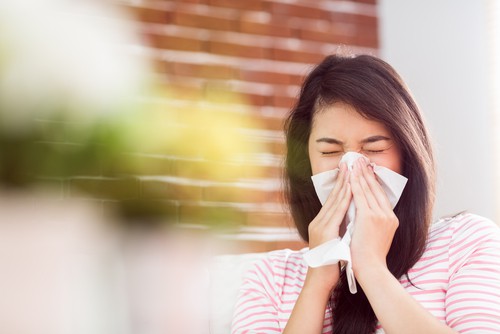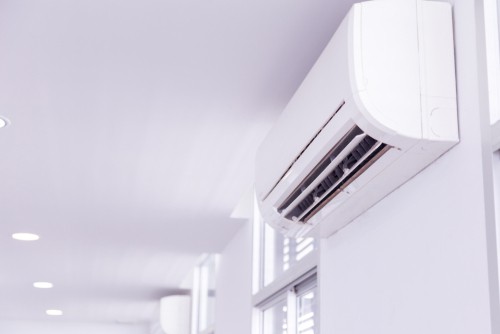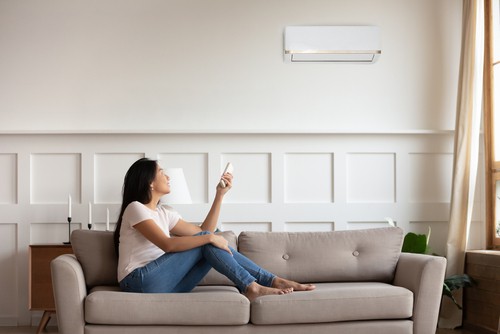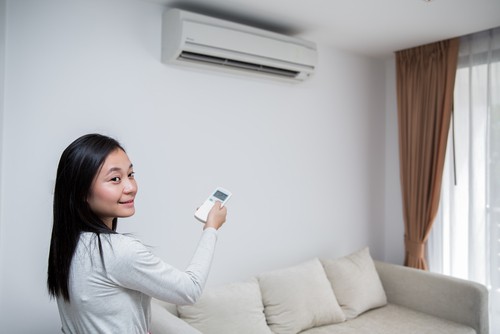
Air Conditioning And Indoor Allergies. Indoor allergies can be a silent menace to our health, often lurking in the corners of our homes without us even realizing it.
The significance of these allergies cannot be underestimated, as they can profoundly impact our well-being.
In sunny Singapore, where services catering to a comfortable indoor environment are in high demand, understanding how air conditioning plays a pivotal role in controlling indoor allergies becomes paramount.
In this comprehensive article, we will delve into indoor allergies and explore how air conditioning can help combat them.
We’ll also touch upon the services based in Singapore that can benefit from this knowledge. So, let’s start by first understanding the nature of indoor allergies in Singapore.
Table of Contents
Indoor Allergies in Singapore
Singapore, known for its lush greenery and vibrant city life, is not immune to indoor allergens.
Common culprits include dust mites, pollen, and mold. Dust mites, microscopic creatures, thrive in warm and humid conditions, making Singapore’s climate an ideal breeding ground.
Pollen from the city’s many trees and plants can also find its way indoors, triggering allergies in sensitive individuals. With their ability to grow in damp environments, mold spores pose yet another threat.
The prevalence of indoor allergies in Singapore is noteworthy. Many of the population experiences symptoms ranging from sneezing, runny noses, and itchy eyes to more severe conditions like asthma.
These allergies can disrupt daily life and substantially impact one’s health. But fret not, for air conditioning is the key to effectively managing these indoor allergens.
How Air Conditioning Affects Indoor Allergies

Filtering Airborne Allergens
Air conditioning systems serve as reliable allies in the battle against indoor allergens. These systems are equipped with filters that are crucial in trapping airborne allergens.
The air passing through the filter captures dust mites, pollen, mold spores, and other microscopic irritants. The result is cleaner, allergen-free air circulating within your home.
However, not all filters are created equal. To maximize their effectiveness, it’s essential to use high-efficiency filters. These filters are designed to capture even the tiniest allergen particles, ensuring your indoor air remains as pure as possible.
Controlling Humidity
Maintaining optimal indoor humidity levels is another way air conditioning contributes to allergy control. Dust mites, in particular, thrive in humid environments.
Using air conditioners to dehumidify the air creates an inhospitable environment for these tiny pests.
Lower humidity levels also discourage mold growth, preventing it from spreading and releasing harmful spores into the air.
Ventilation and Air Circulation
Proper ventilation is key to effective allergy control. Stagnant air can trap allergens, exacerbating allergy symptoms.
Air conditioning systems, when properly maintained, facilitate improved air circulation.
They help ensure fresh outdoor air is regularly brought indoors while expelling stale, allergen-laden air. This circulation reduces the concentration of indoor allergens, creating a healthier living environment.
Choosing the Right Air Conditioning System

When selecting an air conditioning system for allergy control, there are two primary options: centralized and split systems. Let’s compare their advantages and disadvantages.
Centralized vs. Split Systems
Centralized Systems: These systems efficiently cool large spaces and offer better control over humidity levels. However, they can be costly and may not be suitable for smaller homes or apartments.
Split Systems: Split air conditioning systems are more cost-effective and versatile. They can be installed in specific rooms, allowing you to target allergen-prone areas. However, they may not provide the same level of humidity control as centralized systems.
Air Purification Features
Modern air conditioning systems often come equipped with air purifiers. These features enhance their ability to combat indoor allergens. Air purifiers can capture and neutralize allergens and pollutants, improving indoor air quality.
Regular Maintenance for Allergy Control
Regular maintenance of your air conditioning system is crucial to prevent allergen buildup. Neglected systems can become breeding grounds for mold and dust mites. To keep your system in top shape, here are some maintenance tips:
- Regular Cleaning: Clean or replace filters as recommended by the manufacturer.
- Professional Servicing: Schedule periodic servicing by trained technicians to ensure optimal performance.
- Duct Cleaning: Consider duct cleaning to remove accumulated dust and allergens from your HVAC system.
Additional Allergy Control Measures

In addition to your air conditioning system, there are practical steps you can take to reduce allergen exposure in your home further.
Allergen-Proofing Your Home
- Use allergen-proof covers on pillows and mattresses.
- Wash bedding and curtains regularly in hot water.
- Vacuum carpets and upholstery using a high-efficiency vacuum cleaner.
- Keep windows closed during high pollen seasons.
- Use a dehumidifier to maintain low humidity levels.
Professional Allergen Testing
Consider professional allergen testing services in Singapore for a more comprehensive approach to allergy control.
These experts can identify specific allergens present in your home, allowing for targeted solutions to eliminate them effectively.
The Synergy of Air Conditioning and Allergy-Friendly Practices
Air conditioning is just one piece of the puzzle for managing indoor allergies. To achieve the best results, adopting a holistic approach to allergy management is essential.
As discussed earlier, this includes combining air conditioning’s benefits with other allergy-friendly practices. By doing so, you can create an indoor environment that is truly conducive to your well-being.
Health Benefits of Allergy Control

Effective allergy control leads to symptom relief and offers numerous health benefits.
Improved indoor air quality can lead to better respiratory health, fewer allergy-related illnesses, and a higher overall quality of life. Allergy control is an investment in your long-term well-being.
FAQ
Q: Can air conditioning help with indoor allergies?
A: Yes, air conditioning plays a vital role in controlling indoor allergies by filtering allergens, controlling humidity, and improving ventilation.
Q: What are some common indoor allergens in Singapore?
A: Common indoor allergens in Singapore include dust mites, pollen, and mold.
Q: How can I reduce allergen exposure in my home?
A: You can reduce allergen exposure by using allergen-proof covers, regular cleaning, maintaining low humidity levels, and keeping windows closed during high pollen seasons.
Q: Are there air conditioning systems with built-in air purifiers?
A: Many modern air conditioning systems have built-in air purifiers to enhance their allergy-fighting capabilities.
Q: Why is professional allergen testing important?
A: Professional allergen testing can identify specific allergens in your home, allowing for targeted solutions to eliminate them effectively.
Air Conditioning And Indoor Allergies – Conclusion

In conclusion, the role of air conditioning in controlling indoor allergies in Singapore cannot be overstated.
It is a powerful tool for filtering airborne allergens, controlling humidity, and promoting proper ventilation.
Combined with regular maintenance and other allergy control measures, air conditioning can significantly improve indoor air quality and enhance overall health.
So, take proactive steps to ensure that your indoor environment remains allergy-free.
You can enjoy the benefits of cleaner, healthier indoor air by seeking professional advice for allergy-friendly air conditioning solutions.
If you’re seeking expert advice on allergy-friendly air conditioning solutions in Singapore, don’t hesitate to contact us today!
Our team of professionals is dedicated to helping you achieve the cleanest and healthiest indoor air possible.
